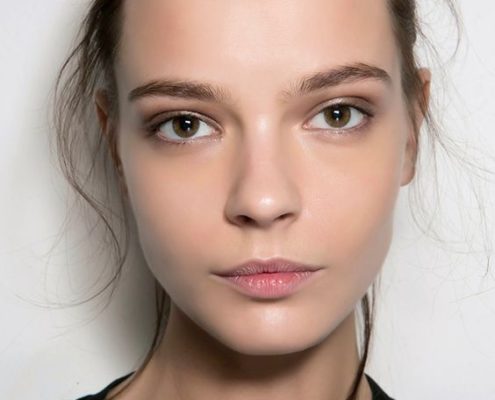
Image via stylecaster
Sweat
Claim: Sweating eliminates toxins, alcohol and pollution from your pores.
Fact: Toxins in the body are broken down by the liver buy levitra canada now and excreted in urine. But if you find saunas relaxing, then bake away—just be aware that all you’re sweating out is water, salt, protein, and nontoxic urea.
Claim: Sweating makes you break out.
Fact: Acne happens when sebum glands become clogged with oil, not sweat. The exception is bacne: A damp sports bra worn too long can push bacteria into the sebum glands, causing zits.
*Sweating (aka exercise) stimulates neurochemical pathways in the brain, resulting in the production of endorphins that act as natural painkillers and boosts overall mood. In addition, working up a sweat stimulates and increases circulation in the body resulting in that post-workout glow. Overall, exercise and working up a sweat is key to keeping inflammation low, increased mood and glow, and controls overall health and wellness.
Diet
Myth: Drinking a lot of water will keep your skin clear.
Fact: While water is very important for a heathy diet and complexion, it sadly will not stop acne. Acne and breakouts can be caused by all sorts of issues, but are most directly related to hormones and bacteria.
*However, drinking lots of water and staying hydrated will help fine lines and wrinkles appear less pronounced. Skin will look less dull and dry as water also helps to flush salt and pollutants out of the body. Consistent water intake also helps the eyes look clearer.
Fact: Glycation is the main enemy when it comes to the skin and the aging process of the body in general.
*The glycation process, which is basically, sugars (from food and alcohol) breaking down the collagen fibers in the skin, which excels the aging process.
Fact: Foods that feed glycation and cause inflammation in the body and the skin are carbohydrates, fried foods, sugar, fatty meats and alcohol. Limiting the above mentioned triggers and increasing intake of vegetables and fruits high in anti-oxidants and essential fats will keep skin glowing and clear.
Exfoliation
Myth: Acne prone skin should not exfoliate for fear of spreading the bacteria to other areas of the face.
Fact: Exfoliation not only clears up existing oil and bacteria, it also removes dead and dry skin cells and inhibits future breakouts. Exfoliation helps acne!
*Regular exfoliation helps treat existing scarring due to Acne. Causing a more even skin surface and smaller pores.
Face Oils
Myth: Face oils are only for dry skin and not acne prone skin.
Fact: Argan Oil and Jojoba Oil, which are similar to our skin’s sebum and trick the skin into thinking enough oil has been produced, so that it does not need to overproduce oil/sebum, thus causing breakouts.
Fact: Hemp Seed Oil eliminates blackheads and is anti-inflammatory.
Fact: People with an oily complexion also suffer from acne and scarring.
Fact: Rose Hip Seed + Baobob Oil help to heal, repair tissue and brighten skin due to high levels Vitamin C, Omega-3 + Omega-6 fatty acids and Retinoic acid.
*Acne prone skin should avoid Avocado oil and Coconut oil as they can be too heavy.
Sunscreen
Myth: All sunscreen can cause Acne + breakouts
Fact: Look for a physical sunscreen that contains Titanium Dioxide or Zinc oxide, as these ingredients sit on top of the skin to protect instead of being absorbed. Also look for oil-free, non-comedogenic sunscreens that come in a dry mist application.
*Stay clear of ingredients like PABA which can cause clogged pores and allergic reactions.
Ingredients
Myth: All ingredients are safe, because there being sold.
Fact: Ingredients matter, no only for what they do inside your body but topically as well. Certain widely used and popular ingredients can be the cause of acne, breakouts and allergies.
*There is no governing body that says what is natural or not in the beauty industry. So you must be your own advocate. Read labels, google ingredients and know what they do.
Fact: Look for naturally derived ingredients that do not contain mineral oils, alcohol , sulfates, silicones, parabens or artificial fragrances.
